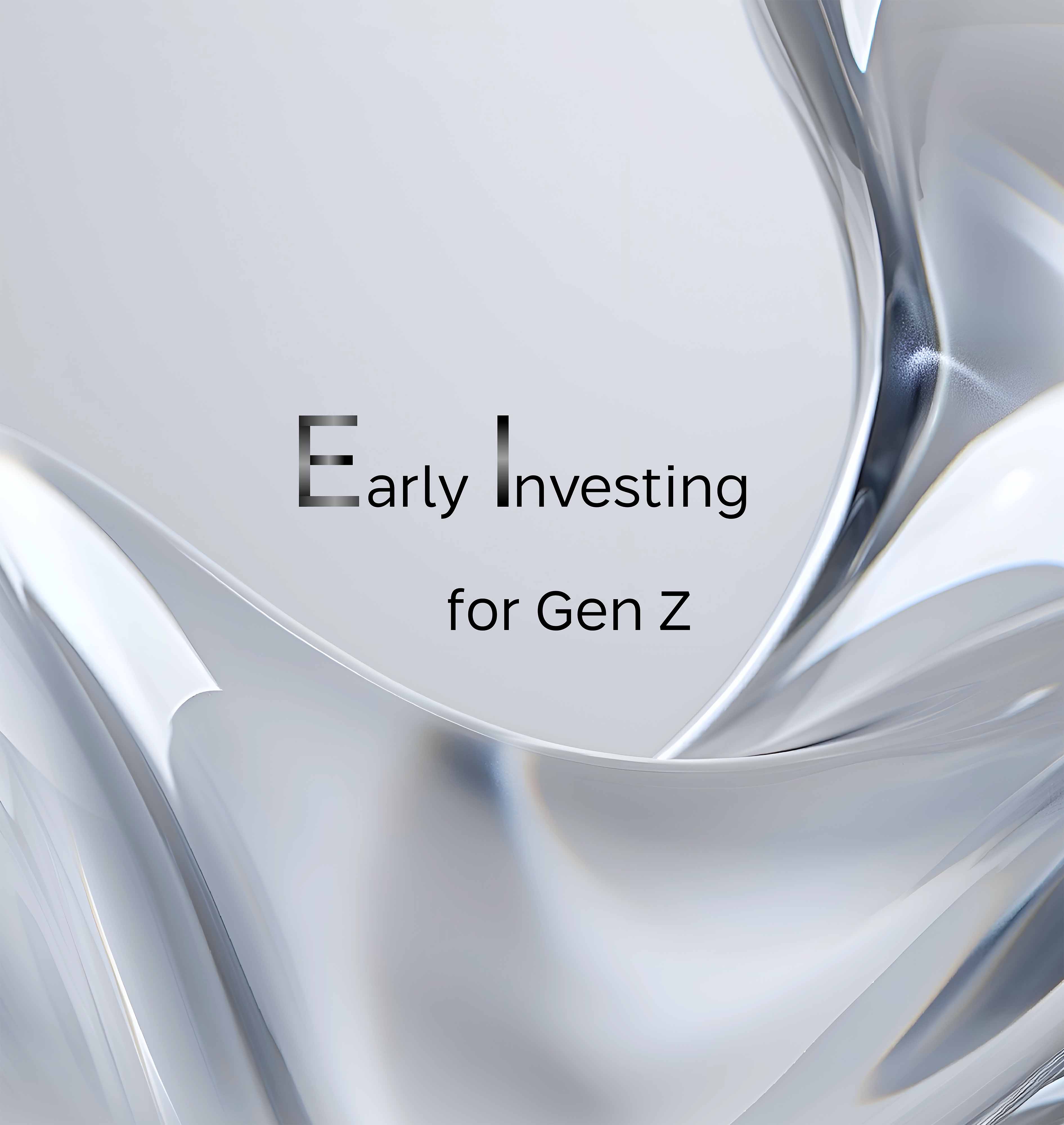
Investment Term Glossary for Gen Z: Decoding the Financial Jargon
The world of finance can seem like a foreign language, especially when you’re just starting out. This glossary breaks down common investment terms into easy-to-understand language, helping Gen Z navigate the world of investing with confidence.
A
- Asset: Anything you own that has value, such as cash, stocks, bonds, real estate, or cryptocurrency.
- Asset Allocation: Dividing your investments among different asset classes (like stocks, bonds, and real estate) to manage risk and potentially increase returns.
- Annual Percentage Yield (APY): The actual rate of return you’ll earn on an investment in one year, taking into account compounding interest.
- Accredited Investor: An investor who meets specific income or net worth requirements, allowing them to invest in higher-risk, less-regulated investments.
B
- Bear Market: A period when stock prices are generally falling, typically defined as a decline of 20% or more from a recent high.
- Bond: A type of debt security where you lend money to a government or corporation, and they promise to pay you back with interest.
- Brokerage Account: An account you open with a brokerage firm to buy and sell investments like stocks, bonds, and ETFs.
- Bull Market: A period when stock prices are generally rising.
- Budget: A plan for how you’ll spend your money, helping you track income, expenses, and savings.
C
- Capital Gains: The profit you make when you sell an asset for more than you bought it for.
- Capital Loss: The loss you incur when you sell an asset for less than you bought it for.
- Compound Interest: Earning interest not only on your initial investment but also on the accumulated interest from previous periods. This is the magic of long-term growth!
- Cryptocurrency: A digital or virtual currency that uses cryptography for security, like Bitcoin or Ethereum.
- Credit Score: A numerical representation of your creditworthiness, used by lenders to determine if they’ll approve you for loans or credit cards.
- Certificate of Deposit (CD): A type of savings account that holds a fixed amount of money for a fixed period of time, and pays a fixed interest rate.
- Commodity: A basic good used in commerce that is interchangeable with other commodities of the same type. Examples include oil, gold, and agricultural products.
D
- Diversification: Spreading your investments across different asset classes, industries, and geographic regions to reduce risk.
- Dividend: A portion of a company’s profits that is paid out to shareholders.
- Dollar-Cost Averaging: Investing a fixed amount of money at regular intervals, regardless of the asset’s price. This can help smooth out the ups and downs of the market.
- Debt-to-Income Ratio (DTI): A personal finance measure that compares an individual’s monthly debt payments to their gross monthly income.
E
- Exchange-Traded Fund (ETF): A type of investment fund that holds a basket of assets, like stocks or bonds, and trades on a stock exchange like a single stock.
- Emergency Fund: A savings account specifically for unexpected expenses, like medical bills or job loss. Aim for 3-6 months’ worth of living expenses.
- Equity: Ownership in a company, typically represented by shares of stock.
- Expense Ratio: The annual fee that an ETF or mutual fund charges to cover its operating expenses, expressed as a percentage of your investment.
F
- Financial Independence, Retire Early (FIRE): A lifestyle movement focused on aggressive saving and investing to achieve financial independence and retire much earlier than traditional retirement age.
- Federal Deposit Insurance Corporation (FDIC): A U.S. government agency that insures deposits in banks and savings associations up to $250,000 per depositor, per insured bank.
- Fidelity: A well-known brokerage firm that allows you to buy and sell stocks, ETFs, mutual funds, and other investments.
- Fixed Income: Investments that provide a fixed rate of return, such as bonds.
G
- Growth Stock: A stock of a company that is expected to grow at a faster rate than the overall market.
H
- Hedge Fund: A type of investment fund that uses more complex strategies to generate returns, often available only to accredited investors.
I
- Inflation: The rate at which the general level of prices for goods and services is rising, and consequently, the purchasing power of currency is falling.
- Index Fund: A type of mutual fund or ETF that tracks a specific market index, like the S&P 500.
- Individual Retirement Account (IRA): A tax-advantaged retirement savings account.
- Initial Public Offering (IPO): When a private company offers shares to the public for the first time.
- Interest: The cost of borrowing money or the return on an investment.
K
- 401(k): A retirement savings plan sponsored by an employer.
L
- Liquidity: How easily an asset can be converted into cash without losing value.
- Limit Order: An order to buy or sell a stock at a specific price or better.
- Leverage: Using borrowed money to increase the potential return on an investment. This can also increase risk.
- Long Position: The purchase of an asset with the expectation that its value will increase.
M
- Mutual Fund: A type of investment fund that pools money from many investors to buy a diversified portfolio of assets.
- Market Capitalization: The total value of a company’s outstanding shares of stock.
- Margin: Borrowing money from a brokerage to invest in stocks or other securities. This can amplify both gains and losses.
- Money Market Account: A type of savings account that typically offers higher interest rates than traditional savings accounts.
N
- Net Worth: The value of your assets minus your liabilities (debts).
O
- Options: Contracts that give you the right, but not the obligation, to buy or sell an asset at a specific price within a certain timeframe.
- Over-the-Counter (OTC): A market where securities are traded directly between parties, rather than on a formal exchange.
P
- Portfolio: A collection of all your investments.
- Principal: The original amount of money you invest or borrow.
- Passive Investing: An investment strategy that aims to match the returns of a market index, typically using index funds or ETFs.
- Penny Stock: A stock that trades for a low price, typically less than $5 per share.
Q
- Quantitative Easing (QE): A monetary policy used by central banks to increase the money supply and stimulate the economy.
R
- Return on Investment (ROI): A measure of the profitability of an investment, expressed as a percentage.
- Risk Tolerance: Your ability and willingness to withstand potential losses in your investments.
- Retirement Account: An account, such as a 401(k) or IRA, specifically designed for saving for retirement.
- Real Estate: Property consisting of land and the buildings on it, used for residential, commercial, or industrial purposes.
S
- Stock: A share of ownership in a company.
- Savings Account: A bank account where you can deposit and withdraw money, typically earning a small amount of interest.
- S&P 500: A stock market index that tracks the performance of 500 of the largest publicly traded companies in the United States.
- Securities and Exchange Commission (SEC): The U.S. government agency responsible for regulating the securities markets and protecting investors.
- Short Selling: Borrowing a stock and selling it, with the expectation that its price will fall so you can buy it back at a lower price and profit.
T
- Tax-Advantaged Account: An account that offers tax benefits, such as a 401(k) or IRA.
- Ticker Symbol: A unique abbreviation used to identify a publicly traded company’s stock.
- Treasury Bills (T-Bills): Short-term debt securities issued by the U.S. government.
U
- Underlying Asset: The asset on which a derivative contract is based, such as a stock, bond, or commodity.
V
- Volatility: The degree of price fluctuation in an asset.
- Vesting: The process of earning ownership rights to employer-sponsored benefits, such as retirement contributions.
W
- Withdrawal: Taking money out of an investment account.
Y
- Yield: The income return on an investment, usually expressed as a percentage.
Z
- Zero-Coupon Bond: A bond that does not pay periodic interest payments but is sold at a discount and redeemed at face value at maturity.
Disclaimer: This glossary is for informational purposes only and should not be considered financial advice. Always consult with a qualified financial advisor before making any investment decisions.



